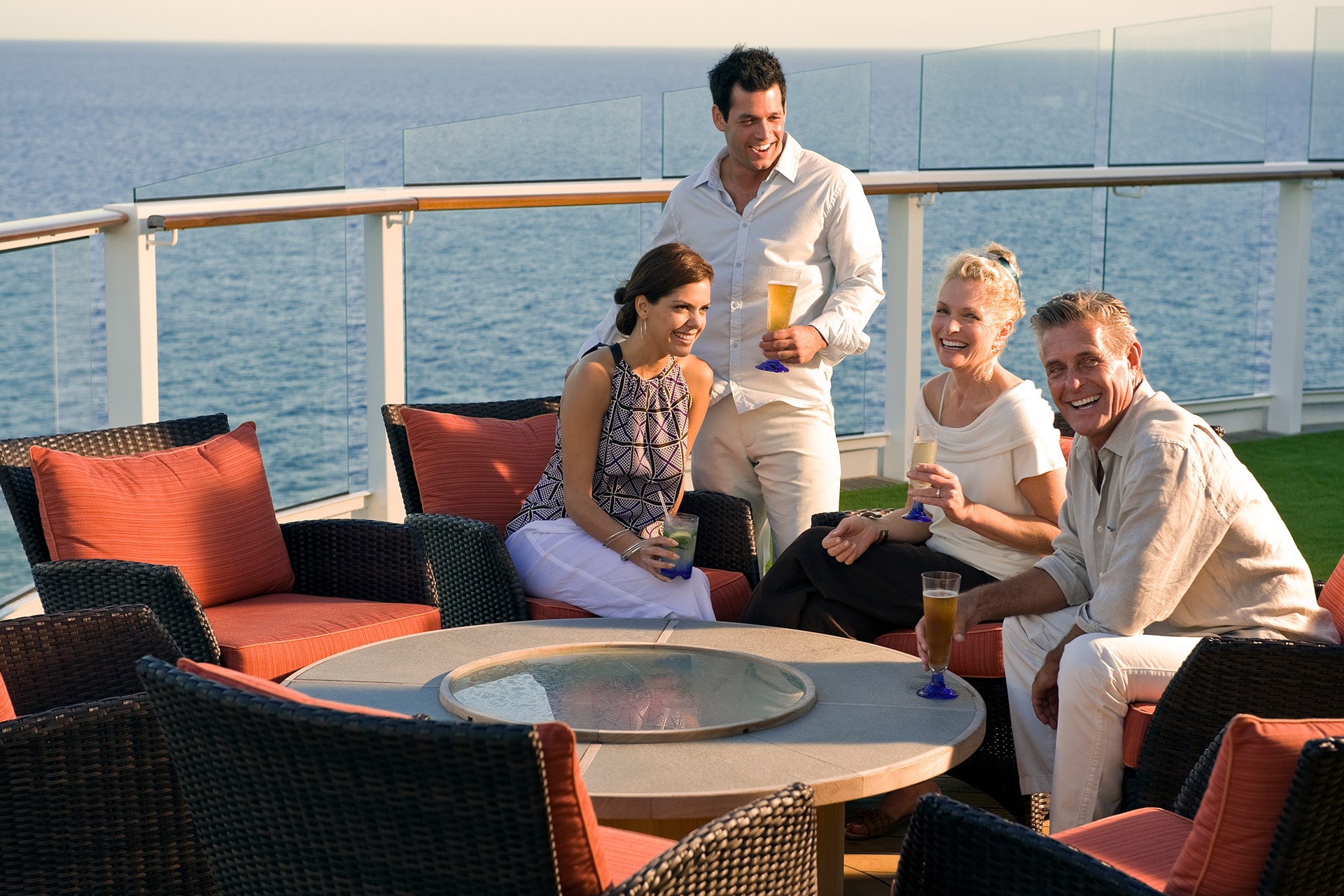Europe Tour for Senior Citizens: Planning a European adventure as a senior citizen doesn’t have to be daunting. With careful planning and consideration of specific needs, a trip across Europe can be a rewarding and enriching experience. This guide explores tailored tour packages, accessible destinations, comfortable accommodations, and efficient transportation options to ensure a smooth and memorable journey for senior travelers.
We delve into practical tips for budgeting and planning, prioritizing safety and health considerations throughout the process.
From exploring historical landmarks to immersing oneself in local cultures, the possibilities are endless. We’ll highlight senior-friendly cities, detail accessible transportation methods, and showcase accommodation options that cater specifically to the needs and preferences of older adults. We also address important health and safety concerns, providing essential information to ensure peace of mind throughout the trip.
Tour Packages
This article details three distinct European tour packages designed specifically for senior citizens, catering to diverse interests and preferences while prioritizing accessibility and comfort. Each package offers a unique blend of cultural immersion, historical exploration, or relaxing rejuvenation, ensuring a memorable and enriching travel experience.
Tour Package Details
Below is a comparison of three distinct tour packages, highlighting their features, destinations, and price ranges. All packages incorporate accessibility features to ensure a comfortable journey for senior travelers.
| Package Name | Duration | Destinations | Price Range (USD) |
|---|---|---|---|
| Classical Europe: A Historical Journey | 14 Days | Rome, Florence, Paris | $6,000 – $8,000 |
| Enchanting Europe: Cultural Immersion | 10 Days | Vienna, Salzburg, Munich | $4,500 – $6,500 |
| Relaxing European Escape: Coastal Delights | 7 Days | Amalfi Coast, Italy | $3,000 – $4,500 |
Accessibility Features
All packages incorporate accessibility features designed to enhance the comfort and convenience of senior travelers. Transportation includes comfortable, climate-controlled motorcoaches with ample legroom and accessible restrooms. Accommodation is provided in hotels with elevators, accessible rooms, and assistance available upon request. Activities are carefully selected to accommodate varying levels of mobility, with options for both leisurely exploration and more active pursuits.
For example, the “Classical Europe” package offers optional guided walking tours with rest stops, while the “Relaxing European Escape” package includes boat trips with accessible boarding.
Do not overlook the opportunity to discover more about the subject of resepi char kuey teow azie kitchen.
Unique Experiences for Senior Travelers
Each package offers unique experiences tailored to the interests of senior travelers. The “Classical Europe” package includes a private guided tour of the Colosseum and Roman Forum, ensuring a more intimate and less crowded experience. The “Enchanting Europe” package features a private concert of classical music in a historic Viennese palace, providing a refined cultural experience. The “Relaxing European Escape” package includes a private cooking class featuring regional Italian cuisine, offering a hands-on culinary experience.
These curated experiences are designed to provide meaningful and memorable moments for senior travelers.
Accommodation
Comfortable and accessible accommodation is paramount for a successful European tour for senior citizens. Failing to prioritize this aspect can significantly impact the enjoyment and overall well-being of participants. The right lodging can transform a potentially stressful trip into a relaxing and memorable experience.The importance of selecting senior-friendly accommodations cannot be overstated. Senior travelers often have specific needs related to mobility, accessibility, and comfort levels that differ from younger travelers.
Ignoring these needs can lead to discomfort, frustration, and even safety concerns. Therefore, careful consideration must be given to the type of accommodation offered, focusing on features that enhance ease of movement, safety, and overall comfort.
Senior-Specific Hotel Amenities and Services
Many hotels across Europe are adapting to cater to the growing senior travel market. These accommodations offer a range of amenities designed to enhance comfort and safety. Examples include rooms with walk-in showers, grab bars in bathrooms, adjustable beds, and easily accessible elevators. Some hotels also provide complimentary assistance services, such as luggage handling and assistance with mobility aids.
Furthermore, many hotels offer restaurants with easily accessible seating and menus that cater to various dietary needs and restrictions often experienced by seniors. The availability of these services can significantly improve the overall travel experience for seniors.
Types of Senior-Friendly Accommodations in Europe, Europe tour for senior citizens
Europe offers a variety of accommodation options tailored to the needs of senior travelers. Hotels with adapted rooms are becoming increasingly common, providing features such as wider doorways, ramps, and accessible bathrooms. These hotels often offer convenient locations near major attractions, ensuring ease of access to sightseeing opportunities. In addition to hotels, assisted living facilities can offer a more supportive environment for seniors requiring greater assistance.
These facilities typically provide 24-hour care, personalized assistance with daily tasks, and social activities. Finally, river or ocean cruises offer a unique and convenient option. Many cruise lines offer accessible cabins and onboard amenities designed to cater to the needs of senior travelers. The all-inclusive nature of cruises eliminates the need for frequent packing and unpacking, and the onboard amenities and entertainment provide a relaxing and enjoyable experience.
Comparison of Accommodation Options
The choice of accommodation depends on individual needs and preferences. The following table compares three options, highlighting their respective advantages and disadvantages:
| Accommodation Type | Pros | Cons | Cost (Approximate Range) |
|---|---|---|---|
| Hotel with Adapted Rooms | Wide range of locations, various amenities, independence maintained. | May lack personalized assistance, potentially higher cost than other options depending on location and amenities. | €100-€300 per night |
| Assisted Living Facility | 24/7 care, personalized assistance, social interaction. | Less independence, potentially higher cost, may be less centrally located. | €150-€500 per night |
| Cruise Ship (with accessible cabins) | All-inclusive, convenient, entertainment and amenities onboard. | Limited shore excursions, potential for seasickness, may be less flexible. | €1500-€5000 per person (for a week-long cruise) |
Health & Safety Considerations

Planning a European adventure as a senior citizen requires careful consideration of health and safety. This section Artikels essential preparations and resources to ensure a smooth and worry-free trip. Prioritizing your well-being will allow you to fully enjoy the rich cultural experiences Europe offers.
Safe and healthy travel for seniors hinges on proactive planning and awareness. From securing appropriate insurance to understanding local emergency services, preparedness is key to mitigating potential risks and ensuring a positive travel experience.
Essential Health and Safety Tips for Senior Travelers in Europe
Before embarking on your European journey, several crucial steps should be taken to safeguard your health and well-being. These measures will help minimize potential problems and maximize enjoyment of your trip.
- Comprehensive Travel Insurance: Secure a policy that covers medical emergencies, evacuation, and repatriation. Look for policies specifically designed for senior travelers, which often include higher coverage limits.
- Emergency Contacts: Keep a list of emergency contacts readily available, including family, friends, your doctor, and the emergency numbers for the countries you’ll be visiting. Share this list with someone at home.
- Necessary Vaccinations and Medications: Consult your doctor well in advance of your trip to determine necessary vaccinations and any required medications. Ensure you have sufficient supplies of prescription drugs, and carry a copy of your prescriptions.
- Packing Essentials: Pack light but include comfortable walking shoes, any necessary medical equipment, and a first-aid kit. Consider packing a small, portable charger for your mobile devices.
- Familiarize Yourself with Local Customs and Laws: Research local customs and regulations to avoid any misunderstandings or potential problems. This includes understanding local emergency procedures.
- Stay Hydrated and Eat Wisely: Maintain good hydration and eat nutritious meals to stay healthy. Be mindful of food safety and avoid consuming anything that seems questionable.
Resources and Services for Senior Travelers in Europe
Europe offers various resources to assist senior travelers facing medical emergencies or unforeseen circumstances. Knowing where to turn for help is crucial for peace of mind.
Many European countries have well-established emergency medical services (EMS) accessible via the standard emergency number (typically 112). Hospitals and clinics in major cities are generally equipped to handle various medical needs. Furthermore, many hotels and tour operators offer assistance services for their guests, including emergency contacts and translation services.
Importance of Travel Insurance for Senior Travelers
Travel insurance is paramount for senior travelers, offering crucial protection against unexpected events. The coverage provided significantly reduces financial burdens and provides access to necessary medical care.
For senior citizens, travel insurance should ideally include comprehensive medical coverage, including emergency medical evacuation, repatriation, and coverage for pre-existing conditions (subject to policy terms). It should also cover trip cancellations or interruptions due to unforeseen circumstances, such as illness or injury. Consider policies that offer 24/7 emergency assistance services and translation support.
For example, a senior traveler experiencing a heart attack in a remote European village would benefit greatly from a policy that covers emergency medical evacuation to a suitable hospital, subsequent treatment, and repatriation back home. Without such coverage, the financial burden could be immense.
Budgeting & Planning: Europe Tour For Senior Citizens
Planning a European tour for senior citizens requires careful budgeting and meticulous planning to ensure a smooth and enjoyable experience. This involves strategizing to minimize costs without compromising comfort and safety. Thorough preparation can significantly reduce stress and maximize the value of your trip.
Budgeting Strategies for Senior Travelers
Effective budgeting for a European tour begins with understanding potential costs. Flights, accommodation, activities, food, and transportation all contribute to the overall expense. Seniors can leverage several strategies to minimize these costs. Consider traveling during the shoulder seasons (spring and autumn) for lower flight and accommodation prices. Booking flights and accommodations well in advance often secures better deals.
Look for package deals that combine flights and hotels, and explore budget-friendly accommodation options such as guesthouses or Airbnb. Taking advantage of free activities like walking tours and visiting free museums can significantly reduce daily expenses. Finally, consider purchasing a travel pass for public transportation if you plan to extensively use trains or buses. A well-structured budget will help seniors manage their finances effectively and avoid overspending.
Step-by-Step Guide to Planning a European Tour
Planning a European tour for seniors requires a systematic approach. First, choose your destinations, considering factors like accessibility and interests. Research the best time to visit each location based on weather and crowd levels. Next, book flights and accommodation. Consider factors like flight duration and proximity to attractions when selecting accommodation.
Then, arrange activities and excursions. Pre-booking tours and tickets can save time and money, and ensure availability. Don’t forget to factor in travel insurance and necessary vaccinations. Finally, create a detailed itinerary, allowing for flexibility and rest days. This step-by-step approach ensures a well-organized and enjoyable trip.
Creating a Detailed Travel Budget
A detailed travel budget is crucial for managing expenses. Begin by estimating costs for flights, based on your chosen destinations and travel dates. Next, determine accommodation costs, considering the number of nights and type of lodging. Allocate funds for daily expenses, including food, transportation, and activities. Factor in potential unexpected costs, such as medical emergencies or baggage fees.
For example, a 10-day trip to Italy might involve: Flights ($1200), Accommodation ($100/night x 10 nights = $1000), Activities ($50/day x 10 days = $500), Food ($50/day x 10 days = $500), Transportation ($200), Miscellaneous ($200). This results in a total estimated budget of $3600. Remember to adjust this based on your specific choices and preferences. Regularly monitor your spending throughout the trip to stay within your budget.
Embarking on a Europe tour as a senior citizen offers a unique opportunity to explore diverse cultures, historical sites, and breathtaking landscapes. By carefully considering the factors Artikeld in this guide – from choosing the right tour package and destination to prioritizing accessible transportation and comfortable accommodation – seniors can confidently plan a memorable and enriching European adventure. Remember to prioritize health and safety, utilize available resources, and enjoy the journey!


